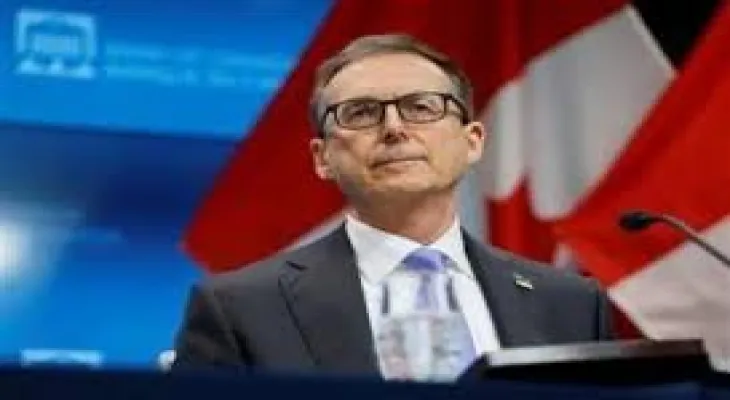Search here
Newspaper
Search here

Arab Canada News
News

Published: May 5, 2024
The Governor of the Bank of Canada, Tiff Macklem, navigates a political minefield every time he testifies before the House of Commons Finance Committee.
Four times a year, members of parliament have the opportunity to question the governor about monetary policy.
At a time when inflation and interest rates are high, MPs – especially the opposition – are eager to ask him about politically charged issues.
Is the federal government spending too much? To what extent does carbon pricing contribute to rising prices? Will eliminating it lead to lower interest rates?
Aware of the weight of his words, the governor focuses his responses on the effects of fiscal policy on inflation.
However, despite Macklem's earnest efforts, his words are often dissected and repackaged by politicians to serve their own narratives.
Parliamentary committees have become increasingly polarizing over the course of the last two Liberal minority governments, providing a stage for political theater outside the House of Commons.
This was fully evident on Thursday when the Conservatives sent out a press release after Macklem appeared before the committee, stating that the governor "confirmed that Trudeau's new spending of $61 billion is 'not helpful' in reducing inflation and lowering interest rates."
The clips were also rapidly circulated on X.
But what was missing was the fact that Macklem never mentioned federal spending.
He pointed out that the provinces have increased their spending, which has largely been funded by deficits.
In response to a question about whether fiscal and monetary policy are aligned, Macklem said, "This has led to an increased contribution from government to growth."
Macklem noted that the April monetary policy report from the central bank anticipates overall government spending to rise by 2.75 percent this year.
This is up from the January forecast of 2.25 percent, largely due to a number of provincial budgets increasing spending.
Notably, the federal budget had not yet been presented when these forecasts were published.
Macklem said regarding the rising growth rate of spending at all levels of Canadian government combined, "Yes, this is not helpful in trying to reduce inflation."
The Canadian press asked the Bank of Canada whether the governor's response was accurately captured in the Conservatives' press release.
Paul Badertscher, the central bank's communications director, said in an email, "We'll let the governor's testimony speak for itself."
The Conservatives did not respond to a question about whether they believed provincial government spending had contributed to inflation.
Instead, they reiterated their interpretation of Macklem's comments.
Spokesperson Sebastian Skamski said, "Macklem stated that government spending is not helpful to efforts to reduce inflation and interest rates."
Skamski said that since the federal Liberals have increased overall spending in this year’s budget, "it is clear" that Macklem was referring to "Justin Trudeau's spending."
After four years in the governor's position during the most economically turbulent period in decades, Macklem has become keenly aware of how quickly the Bank of Canada can find itself caught in a political storm.
The central bank has faced sharp criticism from politicians of all stripes, union leaders, and commentators alike.
Even Conservative Leader Pierre Poilievre promised to fire Macklem over the Bank of Canada's pandemic policy response. He has not repeated that promise for some time.
Even as Conservative MPs now rely on Macklem's credibility as they attempt to prove that Liberal decisions are fueling inflation, government MPs are looking for Macklem's endorsement.
Liberals often pose questions to the governor in an effort to prompt him to defend their record and financial policies.
Stephen Gordon, an economics professor at Laval University, noted that this is not the first time politicians have attempted to use the Bank of Canada to score political points.
He added that the longstanding tradition of central banks is to avoid political entanglements or judgments on government policy.
He said, "It always takes fiscal policy as a given. It's not supposed to express an opinion on whether it's good, bad, or otherwise."
Gordon stated that it is unfortunate that MPs focus more on scoring political points rather than asking substantive questions of the governor.
Parliamentary committee meetings are actually a missed opportunity for politicians to understand what is happening in monetary policy; the focus on scoring media clips or sound bites makes it more challenging for the bank.
"The bank really wants people to understand how things work."
Comments